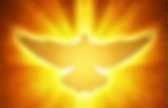

Sex magic. Paschal Beverly Randolph[edit] The earliest known practical teachings of sex magic in the Western world come from 19th-century American occultist Paschal Beverly Randolph, under the heading of The Mysteries of Eulis: If a man has an intelligent and loving wife, with whom he is in complete accord, he can work out the problems [of how to achieve magical results] by her aid. They are a radical soul-sexive series of energies...The rite is a prayer in all cases, and the most powerful [that] earthly beings can employ...it is best for both man and wife to act together for the attainment of the mysterious objects sought. Success in any case requires the adjuvancy of a superior woman. THIS IS THE LAW! A harlot or low woman is useless for all such lofty and holy purposes, and just so is a bad, impure, passion-driven apology for a man. The entire mystery can be given in very few words, and they are: An upper room; absolute personal, mental, and moral cleanliness both of the man and wife.
Theory of everything (philosophy) In philosophy, a theory of everything or ToE is an ultimate, all-encompassing explanation or description of nature or reality.[1][2][3] Adopting the term from physics, where the search for a theory of everything is ongoing, philosophers have discussed the viability of the concept and analyzed its properties and implications.[1][2][3] Among the questions to be addressed by a philosophical theory of everything are: "Why is reality understandable? " "Why are the laws of nature as they are? " "Why is there anything at all? "[1] The "system building" style of metaphysics attempts to answer all the important questions in a coherent way, providing a complete picture of the world. Plato and Aristotle could be said to be early examples of comprehensive systems. In the early modern period (17th and 18th centuries), the system-building scope of philosophy is often linked to the rationalist method of philosophy, that is the technique of deducing the nature of the world by pure apriori reason.
Metaphysics. Metaphysics is a traditional branch of philosophy concerned with explaining the fundamental nature of being and the world that encompasses it,[1] although the term is not easily defined.[2] Traditionally, metaphysics attempts to answer two basic questions in the broadest possible terms:[3] Ultimately, what is there? What is it like? Prior to the modern history of science, scientific questions were addressed as a part of metaphysics known as natural philosophy. Originally, the term "science" (Latin scientia) simply meant "knowledge". Etymology[edit] However, once the name was given, the commentators sought to find intrinsic reasons for its appropriateness. There is a widespread use of the term in current popular literature which replicates this understanding, i.e. that the metaphysical equates to the non-physical: thus, "metaphysical healing" means healing by means of remedies that are not physical.[8] Central questions[edit] Cosmology and cosmogony[edit] Determinism and free will[edit] [edit]
Theory of everything (philosophy) Magical organization. Significant orders and organizations[edit] The Hermetic Order of the Golden Dawn has been credited with a vast revival of occult literature and practices and was founded in 1887 or 1888 by William Wynn Westcott, Samuel Liddell MacGregor Mathers and William Robert Woodman. The teachings of the Order include Enochian magic, Christian mysticism, Qabalah, Hermeticism, the paganism of ancient Egypt, theurgy, and alchemy.[1] Ordo Aurum Solis, founded in 1897, is a Western Mystery Tradition group teaching Hermetic Qabalah. Its rituals and system are different from the more popular Golden Dawn, this is because the group follows the ogdoadic tradition instead of rosicrucianism. The A∴A∴ was created in 1907 by Aleister Crowley and also teaches magick and Thelema.
Their main text is the The Book of the Law. Other magical organizations[edit] Some (in many cases, equally notable) organizations. Organizations founded prior to the 19th century[edit] Organizations founded in the 19th century[edit] Occult. Hermetic Order of the Golden Dawn.
The three founders, William Robert Woodman, William Wynn Westcott, and Samuel Liddell MacGregor Mathers were Freemasons and members of Societas Rosicruciana in Anglia (S.R.I.A.).[5] Westcott appears to have been the initial driving force behind the establishment of the Golden Dawn. The Golden Dawn system was based on hierarchy and initiation like the Masonic Lodges; however women were admitted on an equal basis with men. The "Golden Dawn" was the first of three Orders, although all three are often collectively referred to as the "Golden Dawn". The First Order taught esoteric philosophy based on the Hermetic Qabalah and personal development through study and awareness of the four Classical Elements as well as the basics of astrology, tarot divination, and geomancy. The Second or "Inner" Order, the Rosae Rubeae et Aureae Crucis (the Ruby Rose and Cross of Gold), taught proper magic, including scrying, astral travel, and alchemy.
Influences[edit] History[edit] Cipher Manuscripts[edit] J.W.